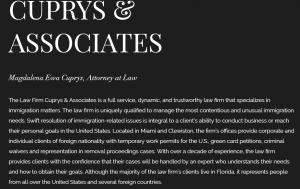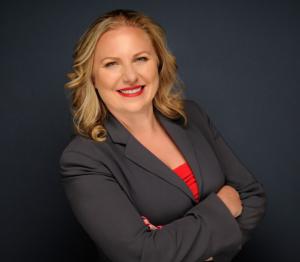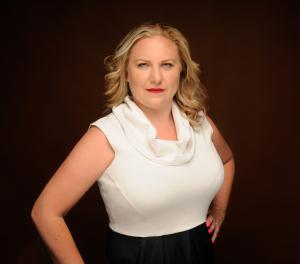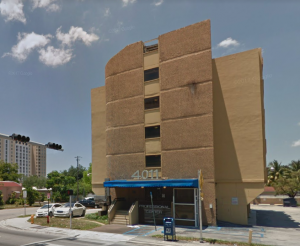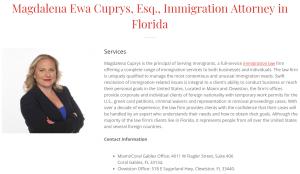Attorney Magdalena Cuprys concludes publication of "Paralegal Profession" review articles
Paralegals sometimes perform “legal” work that otherwise would be done by attorneys. However, the supervising Attorneys remain fully responsible.
Cuprys & Associates (N/A:N/A)
The Paralegal Role in the Legal Profession
In general, Paralegals are qualified to perform their responsibilities by completing an educational program, receiving training on the job, or through actual work experience. They do not undergo the rigorous training of Attorneys, nor are they licensed like attorneys. Paralegals sometimes perform “legal” work that otherwise would be done by attorneys. However, the supervising Attorneys remain fully responsible for any legal work delegated to a Paralegal and must always supervise the Paralegal’s work. There are several different types of Paralegals, the designation depends upon the required education and training. Examples are:
“Certified Paralegal”
A Certified Paralegal is a Paralegal who has completed the voluntary certification process of a professional association by developing a specified level of professional competency. The various accreditation bodies include: The National Association of Paralegals (NALA) which awards the designation of CP (Certified Paralegal) and CLA (Certified Legal Assistant) to those who meet their specific requirements and complete the competency examination. NALA also governs certain Advanced Specialty Certifications (CLAS) programs, and there also exist certain state-specific advanced competency exams.
“Registered Paralegal”
The National Federation of Paralegal Associations (NFPA) awards the designation Registered Paralegal (RP) to persons who have met its requirements, which requires passing a specific competency examination known as the Paralegal Advanced Competency Exam (PACE).
“Professional Paralegal”
The National Association for Legal Professionals (NALS) awards the Professional Paralegal (PP) certification designation which reflects a proficiency in procedural law, substantive law and an overall commitment to a higher standard of conduct and professionalism. NALS' Professional Paralegals may distinguish themselves further by earning Specialty Certifications in various substantive law areas.
Paralegal Work Assignments
Paralegals can be delegated any task normally performed by a lawyer, as long as the lawyer supervises the work (except those specifically proscribed by law). For example, Paralegals can review and organize client files, conduct factual and legal research, prepare documents for legal transactions, draft pleadings and discovery notices, interview clients and witnesses, and assist at closings and trials. But Paralegals (and their supervising Attorneys) must always avoid the “unauthorized practice of law.” Generally, Paralegals may not represent clients in court, take depositions, or sign pleadings. In addition, Paralegals may not establish the attorney's relationship with the client or set fees to be charged, and may not give legal advice to a client.
The continued usage of Paralegals in the profession is also a mandate of pure economics. Paralegals significantly reduce attorney burden and costs. In many instances it affords the practitioner the ability to lower legal fees in certain practice areas. They are also extremely valuable in their ability to maintain increased client communication and contact which further enhances client satisfaction and customer service. Paralegals also are of tremendous economic value to the law firm or office, as their hourly time spent on individual cases may be billed to the client separately, and at lower rates for the clients. Such staff may increase client satisfaction and provide a significant additional income stream for the law practice if managed effectively. Additional benefits to the firm as well as the community is the usage of Paralegals in Pro Bono activities and services. Paralegals enhance the ability of law firms to provide significantly more pro bono legal services as they could have through attorneys alone.
Supervising Attorneys remain ultimately liable for Paralegal work
As in every aspect of the practice of law, utilizing Paralegal services comes with corresponding ethical considerations for the attorney or firm. Attorneys are ultimately responsible for the work product of Paralegals. Even more, Attorneys are also responsible for the ethical conduct of the Paralegals whom they employ. Any transgressions by the Paralegals may subject the Attorney to professional discipline. This is due to the fact that Paralegals are not directly subject to any rules of professional conduct promulgated by courts, legislatures, or government agencies, the (supervising) Attorneys are. However, Paralegals who are members of national and/or local Paralegal associations are required to follow the ethical codes of those associations.
Billing issues for Paralegal Work
As pertains to fees and compensation, a Paralegal's substantive legal work (i.e., that which is not clerical) may be billed directly to the client just as an attorney's work is billed, or considered in setting a flat fee just as that of an attorney's work. Attorneys may compensate Paralegals based on the quantity and quality of their work and the value of that work to the law practice. Paralegal compensation, however, may not be in any way based on a contingency, by advance agreement, or on the specific outcome of a particular case. In addition, Attorneys may not split any legal fees with Paralegals nor compensate Paralegals for the referral of legal business. They are also not permitted to be a partner or shareholder in a law firm.
Where to get Paralegal Education
As previously mentioned, the educational programs for Paralegals widely vary. These programs may or may not be approved or accredited. Those educational programs that are affiliated with a college or university may offer Associate's degrees, Bachelor's degrees, Master's degrees, and/or certificates, which may be classified as undergraduate or post-baccalaureate certificates. Proprietary schools generally offer certificate programs. Educational programs are also available via The American Association for Paralegal Education (AAfPE), NALS – the Association of Legal Professionals, the National Federation of Paralegal Associations (NFPA), the National Association of Paralegals (NALA), and the American Alliance of Paralegals (AAIPI) have developed accredited curriculum.
Conclusion
Paralegals play an indispensable role in the legal profession, and if the predictions are correct, that indispensable role will continue to expand as economic pressures force law firms and businesses to become ever more cost-effective. While the job outlook for Paralegals is bright, this may adversely affect Attorneys, whose work will migrate as much as technical and ethically possible to Paralegals. Just as a doctor’s workload may in part be handled by nurses or nurse practitioners, a lawyer’s workload will end up where it is most cost-effective (subject to professional and ethical rules). The only constant in life is change, and this is just another example of how times are changing. The drum computer has to a large extent replaced the drummer in a band or studio recording. The remote-controlled drone has in part replaced the fighter pilot. The taxi driver may soon be replaced by Google’s or Uber’s self-driving cars. This goes to prove that the only constant in life, even business life, is change.
The complete articles will be published on the Blog of Ms. Cuprys at https://magdalenacuprysblog.blogspot.com/
About Magdalena Ewa Cuprys
Magdalena Cuprys is the principal of Serving Immigrants, a full-service immigration law firm offering a complete range of immigration services to both businesses and individuals. The law firm is uniquely qualified to manage the most contentious and unusual immigration needs.
Law Firm Website: http://www.servingimmigrants.com
Website: http://tuabogadadice.com/
Blog: https://magdalenacuprysblog.blogspot.com/
Attorney Profile: https://solomonlawguild.com/magdalena-e-cuprys%2C-esq
Member for the American Immigration Lawyers Association (AILA), see http://www.ailalawyer.com/english/AttorneyDetail.aspx?P=19738&A=40169
Lawyer Directory: https://www.lawyer.com/magdalena-ewa-cuprys.html
LinkedIn Profile: https://www.linkedin.com/in/magdalena-cuprys-265534a/
Tiffany Ramirez
Cuprys and Associates, Serving Immigrants
+ + +1 305-924-1133
email us here
Visit us on social media:
Facebook
LinkedIn
Legal Assistant Program at RTC
Legal Disclaimer:
EIN Presswire provides this news content "as is" without warranty of any kind. We do not accept any responsibility or liability for the accuracy, content, images, videos, licenses, completeness, legality, or reliability of the information contained in this article. If you have any complaints or copyright issues related to this article, kindly contact the author above.

